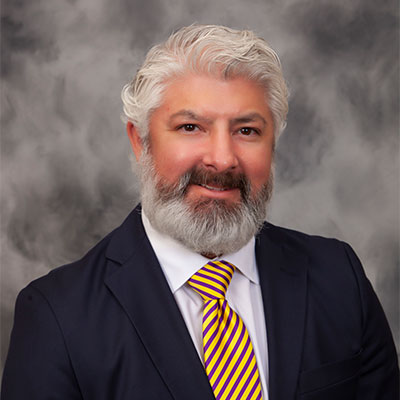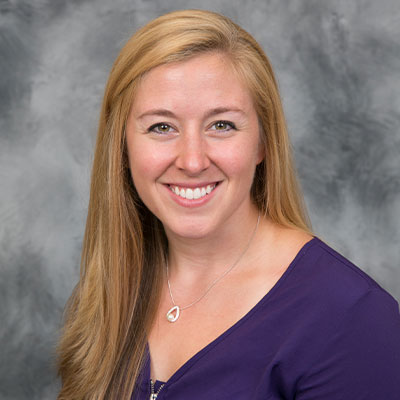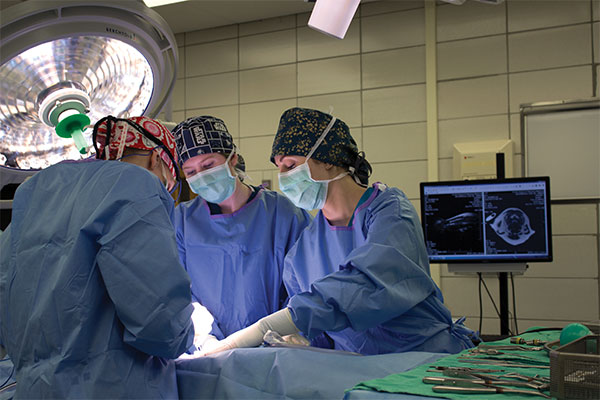SMALL ANIMAL SURGERY
Our Expertise
The LSU Small Animal Surgery Service aims to work closely with your veterinarian to offer you the highest quality surgical care possible for your pet. We provide state-of-the-art veterinary medicine and surgery, while teaching future veterinarians and veterinary surgeons.
Our companion animal surgery team is utterly committed to excellent veterinary care and we believe that, ultimately, both you and your pet benefit from our expertise, specialized training, and advanced equipment. We look forward to working with you and your pet.
Services
Orthopedic Surgery
The mission of the Small Animal Orthopedic and Neurosurgical Service at LSU is to work closely with your veterinarian to offer you the highest quality of surgical care possible for your pet. We provide state-of-the-art veterinary medicine and surgery, while teaching future veterinarians and veterinary surgeons.
Our orthopedic team is utterly committed to excellent veterinary care and we believe that, ultimately, both you and your pet benefit from this extra attention.
Services include
- Angular limb deformity surgery
- Arthroscopy
- Consultation on osteoarthritis and other orthopedic conditions
- Internal fracture repair (plates, interlocking nails)
- Minimally invasive fluoroscopy-guided fracture repair
- Neurologic surgery
- Physical rehabilitation
- Total hip replacement (THR)
- Triple pelvic osteotomy (TPO)
- External skeletal fixation (circular, linear, and hinged fixators)
Soft Tissue Surgery
The soft tissue service deals with a range of patients requiring cardiothoracic, gastrointestinal, respiratory, urogenital and reconstructive surgery. In addition, minimally invasive laparoscopic or endoscopic surgery, laser and oncologic (cancer) surgical procedures are available. The soft tissue service works closely with other specialist departments, including diagnostic imaging, medical oncology, and internal medicine to provide an integrated approach and the best possible outcome for your pet.
Pre-operative diagnostics available include digital radiology, ultrasound, fluoroscopy, computed tomography (CT) scans, and magnetic resonance imaging (MRI). 24-hour care is available in the intensive care unit for pets that require it. Emergencies are seen at all times. Generally, patients will be referred from your regular veterinarian, who we liaise closely with throughout your pet’s treatment period and follow up.
The soft tissue service includes board-certified surgical specialists, as well as residents (specialists-in-training), interns, and senior veterinary students. We aim to provide the highest level of care for your pet, while keeping you updated and informed at all times.
Services include
- Soft tissue
- Thoracoscopy
- Laparoscopy
- Laser surgery
- Routine & advanced reconstructive respiratory, gastroenterological, cardiac, urogenital, endocrine and oncological surgery and wound management
What to Expect
Overview
We are different from a private veterinary specialty practice. Teaching veterinary students, veterinary interns and surgical residents is one of our primary tasks, so it is essential that they be involved diagnosing and treating your pet under the direct guidance of an ACVS-boarded veterinary surgeon.
Consequently, an appointment at the LSU VTH will probably be more time consuming than one with your local veterinarian. You should be prepared to spend at least 90 minutes at the LSU VTH after your appointment begins, and if extensive testing is required, it may be necessary to leave your pet for a full day with us.
Your Consultation
-
If possible, any information regarding previous radiographs, lab test results, and medical history should be brought to the initial consultation. Also bring any medication that your pet is taking. We will use this information in combination with a thorough examination of your pet in order to make our initial evaluation.
-
A senior veterinary student will obtain the initial medical history. The student will then have you return to the waiting room while your pet is taken into the hospital and examined by the surgical team. Once your pet has been examined, the student and at least one clinician will meet with you to discuss the options for diagnosis and treatment. If further diagnostic or surgical procedures are recommended and you wish to proceed, you will be given an estimate of the costs and the length of hospital stay.
-
In general, simple radiographs can be performed within a few hours on an outpatient basis. The pet is usually sedated to allow for more accurate radiographic positioning, and will decrease potential anxiety or discomfort. In order to safely sedate your pet, it should not eat after 10:00 p.m. the night prior to the appointment, but drinking water is okay. If your pet is sick or very young (less than 3 months old) please check with our service prior to the appointment as to whether fasting is recommended.
Hospitalization
- If your pet’s problem requires more extensive diagnostic procedures or surgery, it will normally be admitted as an inpatient for these procedures.
- Surgery is not usually performed on the same day as the appointment, unless it is an emergency.
- Animals that are medically unstable or painful will be admitted to the intensive care unit, where they will receive 24-hour care by certified veterinary technicians.
- While under anesthesia for surgery, your pet is monitored constantly by a veterinary student and anesthesia technician, under the guidance of veterinary anesthetists.
- After surgery, the surgery student will sit with your pet until it has completely recovered from the anesthesia.
- Most pets will be kept on some type of pain medication for several days after surgery.
- Most pets are monitored in the hospital for at least one night after surgery, possibly more, depending on the intensity of the postoperative care required.
- During the hospital stay, you will be given daily telephone updates regarding the status of your pet.
- You may also arrange to visit your pet while it is hospitalized.
- When your pet is ready to go home we will arrange a time that is as convenient as possible. Weekend or evening discharge times can be arranged.
- At the time of discharge, you will be given a written summary of the tests and procedures performed. In addition, the home care and follow-up recommendations will be discussed with you.
Faculty and Staff
Faculty

Jude Bordelon
DVM (LSU 2002), MS, MBA, DACVS
Professor of Small Animal Surgery

Kaustubh Dongaonkar
BVSc & AH, MVSc, MSc DACVS
Assistant Professor of Small Animal Surgery

Alissa St. Blanc
DVM (LSU 2016), DACVS
Assistant Professor of Small Animal Surgery
Interns and Residents
Ashton Berger, VMD, Small Animal Surgery Resident
Nimar Gill, DVM, Small Animal Surgery Resident
Ruth Guischard, MVB, Small Animal Surgery Resident
Mackenzie Janzen, DVM, Small Animal Surgery Intern
Paulina Samaniego, DVM, Small Animal Surgery Intern
Darius Statham, DVM (LSU 2023), Small Animal Surgery Intern
Veterinary Technicians
Torri Collins-Cannon, RVT
Corinne McFerren
Alice Price
Julia Perkins, RVT
Service Coordinator
To request a referral, please call our service coordinator.
Shelby Panepinto
225-578-5109
